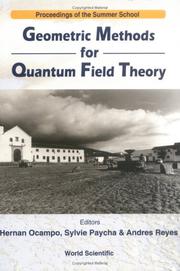| Listing 1 - 2 of 2 |
Sort by
|
Book
ISBN: 3031542843 Year: 2024 Publisher: Cham : Springer Nature Switzerland : Imprint: Springer,
Abstract | Keywords | Export | Availability | Bookmark
 Loading...
Loading...Choose an application
- Reference Manager
- EndNote
- RefWorks (Direct export to RefWorks)
This book probes professional development issues crucial to early career researchers, beginning with advice on selecting mentors and optimizing mentoring relationships. From this foundation, the book describes how to navigate the peer-review process, particularly when publishing in academic journals, as well as build connections between the different pieces of academic work published during the early career years. It details strategies to leverage the tools of storytelling to build a research program coupled with concrete guidance on delivering job talks during academic job interviews. In addition, the book includes a feature, Anonymous Accounts, which provides real-life examples of how early career researchers experienced many aspects of their training and illustrates how to overcome obstacles on the path to success in the academic job market. Key topics featured include: Selecting and working with mentors. Navigating peer review when publishing in academic journals. Building a research program. Delivering academic job talks. The Early Career Researcher’s Toolbox is a must-have resource for graduate students, post-doctoral fellows, and aspiring undergraduate students as well as all early career and other professionals in search of a resource designed to help them succeed in the academic job market.
Group work in research. --- Research --- Research teams. --- Vocational guidance. --- Developmental psychology. --- Clinical psychology. --- Public health. --- Social psychiatry. --- School Psychology. --- Developmental Psychology. --- Clinical Psychology. --- Public Health. --- Child and Adolescence Psychology. --- Clinical Social Work. --- Psicologia del desenvolupament --- Psicologia escolar --- Formació del professorat

ISBN: 1281956252 9786611956257 9812810579 9789812810571 9781281956255 9789810243517 9810243510 6611956255 Year: 2001 Publisher: Singapore River Edge, N.J. World Scientific
Abstract | Keywords | Export | Availability | Bookmark
 Loading...
Loading...Choose an application
- Reference Manager
- EndNote
- RefWorks (Direct export to RefWorks)
Both mathematics and mathematical physics have many active areas of research where the interplay between geometry and quantum field theory has proved extremely fruitful. Duality, gauge field theory, geometric quantization, Seiberg-Witten theory, spectral properties and families of Dirac operators, and the geometry of loop groups offer some striking recent examples of modern topics which stand on the borderline between geometry and analysis on the one hand and quantum field theory on the other, where the physicist's and the mathematician's perspective complement each other, leading to new mathe
| Listing 1 - 2 of 2 |
Sort by
|

 Search
Search Feedback
Feedback About UniCat
About UniCat  Help
Help News
News